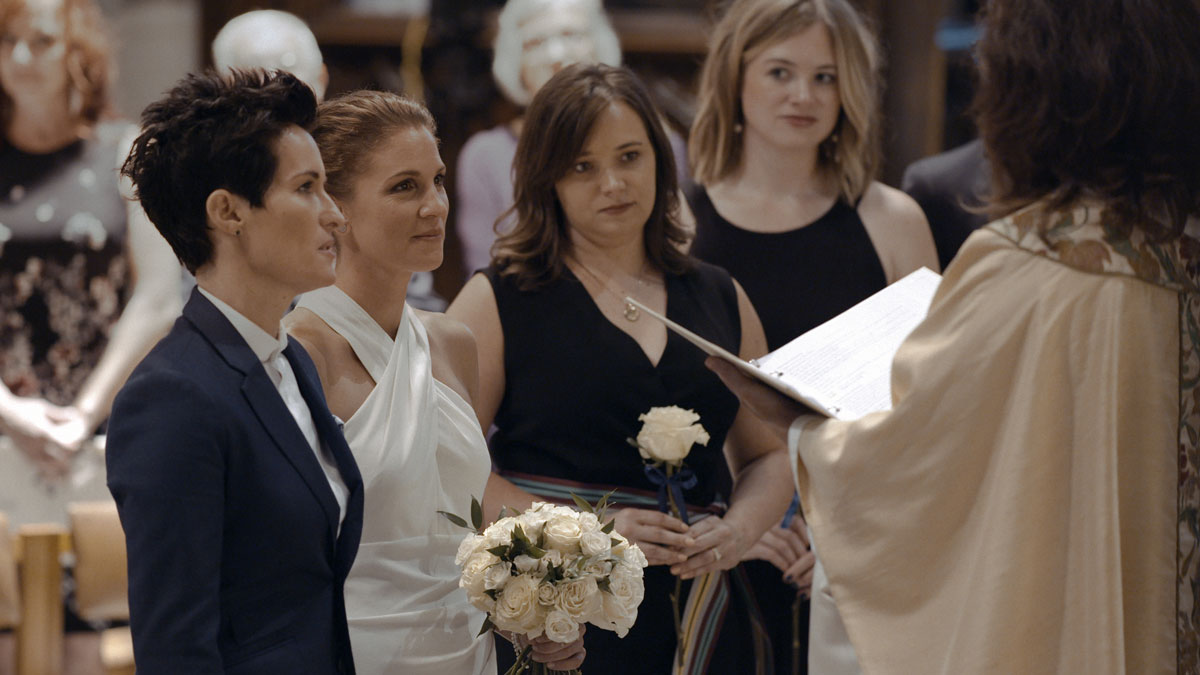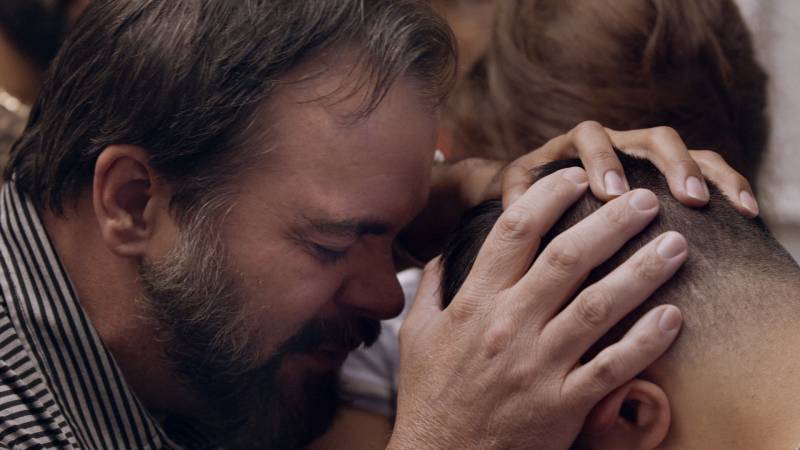The most remarkable aspect of Pray Away, Kristine Stolakis’ valuable documentary about reparative or conversion therapy—the pseudoscientific, anti-gay practice inflicted on more than 700,000 LGBTQ+ Christians in the U.S. by Exodus International and other elements of the religious right—is the absence of rancor or fury.
I’ve just revealed something about my view of social-issue documentaries as a legacy of ’60s activism, and my endorsement of their implicit (and occasionally explicit) tone of righteous, moral indignation. Pray Away, which was completed a year ago and debuted this week on Netflix, reveals a lot about the post-ACT-UP generation of filmmakers, who view the LGBTQ+ civil rights movement less as a finite campaign with victories and setbacks than as a continuum of evolving attitudes.
Evolving attitudes is both the currency and promise of the film, which toggles between the present and the past to recount the journeys of several former star spokespeople of the evangelical gay-to-straight crusade. Most left the so-called movement a good long while ago, so although their struggles are vivid they aren’t, by and large, immediate. Plenty of filmmakers finesse and manipulate time for maximum dramatic effect, but to her credit, Stolakis, a graduate of Stanford’s vaunted MFA documentary program who made several shorts and Pray Away in the Bay Area before relocating to New York during the pandemic, doesn’t contrive climaxes and catharses out of years-old life changes.
Exodus co-founder Michael Bussee shows up as a powerful witness, as does baby-faced John Paulk, who was booked so frequently on TV with his ex-lesbian wife that he became (in his words) “the most famous ex-gay person in the world.” He recounts that “high point” with a mix of lingering pride and embarrassment that, in one short sentence, suggests the ongoing conversation—or negotiation—between identity, faith and sexuality that troubles so many people.

No doubt some view Bussee and Paulk as perpetrators who did enormous harm to others, rather than as victims. So Stolakis constructs her film around Julie Rodgers, whose just-published memoir Outlove: A Queer Christian Survival Story recounts her saga of exploitation, self-loathing and self-harm.


